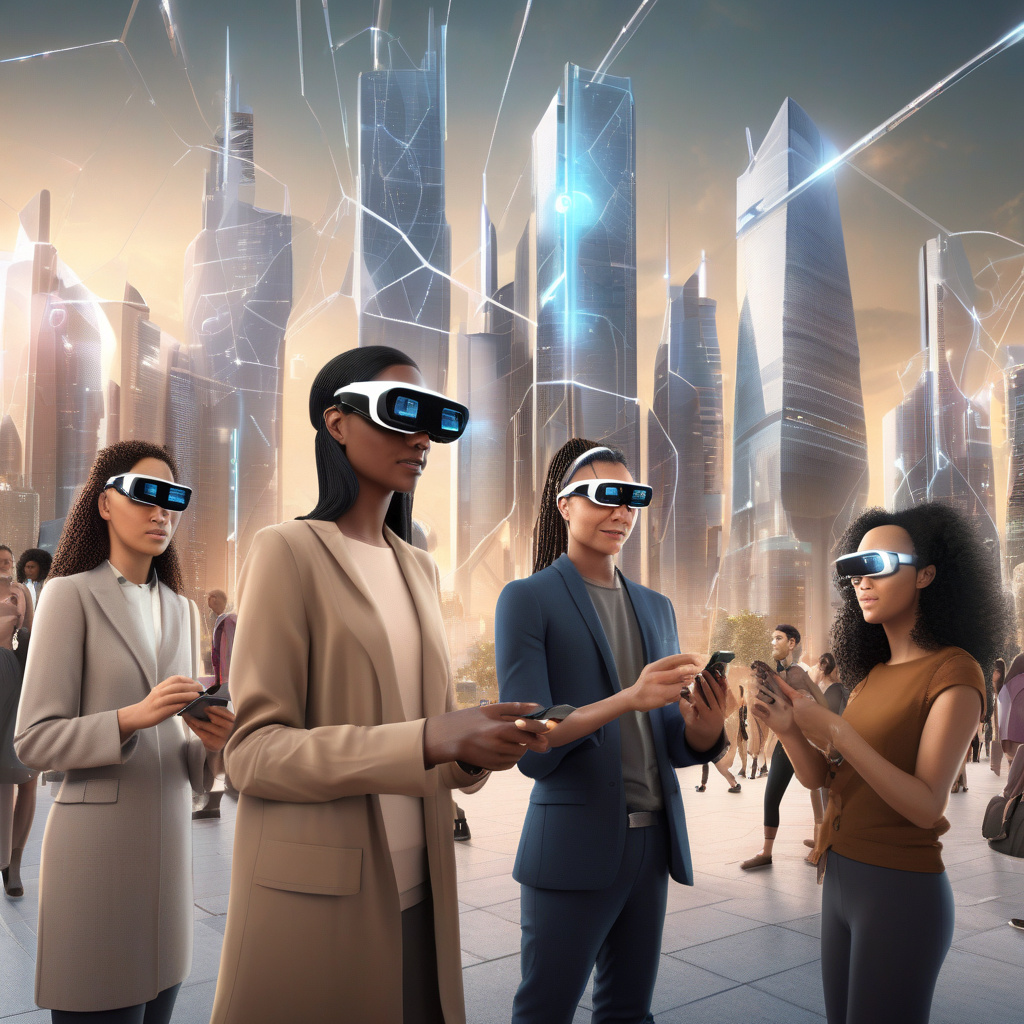Meta Bets on Smartglasses to Lead Future Tech
Meta, formerly known as Facebook, is making bold moves in the tech industry by betting on smartglasses to revolutionize the way users interact with the digital world. With a vision to go beyond screens and touch, Meta is paving the way for AI-first devices to reshape the future of technology.
Smartglasses are not a new concept, but Meta aims to take them to the next level by integrating artificial intelligence seamlessly into the user experience. These smartglasses will not only enhance the way we see the world but also provide us with real-time, personalized information and services right in front of our eyes.
Imagine walking down the street and receiving notifications, navigation guidance, and even virtual objects overlaying the physical environment, all through a stylish pair of smartglasses. This futuristic technology has the potential to transform how we perceive and engage with our surroundings, blurring the lines between the physical and digital realms.
Meta’s focus on smartglasses is strategic, considering the increasing demand for hands-free, intuitive devices that can keep up with our fast-paced lifestyles. By leveraging AI capabilities, these smartglasses can offer a level of convenience and immersion that traditional devices like smartphones and tablets struggle to provide.
One of the key advantages of smartglasses is their potential to enhance productivity and efficiency in various industries. For example, in the healthcare sector, doctors can access patient records and vital information in real time without having to look away from their tasks. Similarly, in manufacturing and logistics, workers can receive instant instructions and data overlays to streamline operations.
Moreover, smartglasses have the potential to revolutionize the way we consume content and entertainment. From watching immersive augmented reality (AR) experiences to attending virtual events and meetings, the possibilities are endless. Meta’s investment in smartglasses signals a shift towards more immersive and interactive forms of digital engagement.
However, the success of smartglasses hinges not only on technological advancements but also on user acceptance and privacy concerns. Meta will need to address challenges related to data security, user consent, and social implications to ensure widespread adoption of smartglasses.
Despite these challenges, the potential benefits of AI-powered smartglasses are undeniable. As Meta continues to innovate in this space, we can expect to see a new era of technology where the boundaries between the physical and digital worlds blur, opening up exciting possibilities for how we connect and interact with information.
In conclusion, Meta’s bet on smartglasses represents a bold step towards shaping the future of tech with AI-first devices. By pushing the boundaries of innovation and user experience, Meta is poised to lead the way in transforming how we perceive and engage with the world around us through smartglasses.
#Meta, #Smartglasses, #AI, #FutureTech, #DigitalTransformation











